In this issue...
News
- Celebrating the 2024 Greg Smith Award Recipient
- The Nathan Barry Prize for Evangelism
- Alyssa Aylesbury’s HSC Artwork selected for inclusion in the Class of 24 Exhibition
- Outstanding examples of student work in English
- Mindquest Certificate of Achievement Award - Cullen Hamlin
- Auf Wiedersehen!
- Year 8 students learn from Treehouse Theatre
- Creativity on display in Toyota Dream Car Competition
- Top results at Australasian Problem-Solving Mathematical Olympiads
From the Principal
The message of grace that redeems mankind
The message of grace that redeems mankind

To quote (for the first time in my life!) Bob Katter, “a bloke born in a shed out the back of a pub” changed everything. A saviour come to earth to redeem man.
Silent night, holy night
Son of God, love's pure light
Radiant beams from Thy holy face
With the dawn of redeeming grace
Jesus Lord, at Thy birth
Jesus Lord, at Thy birth
After the last lesson has finished at school for the year, the last band-aid applied to a scratched knee, the last bus has left the site, the last classroom door locked and lights extinguished, what remains is the message of grace that redeems mankind, through the coming of our saviour:
Trumpets sound and angels sing
Listen what they say
That Man will live forevermore
Because of Christmas day
Thank you for being part of our community this year, for your contributions to our school, and for trusting us as a partner in raising and educating your children in knowledge and wisdom under the Lordship of Christ. May the Christmas season be a time for you and your family to remember and celebrate the precious gift of our Father in sending his son.
Mr David Stonestreet
Principal
From the Deputy Principal
Staff Farewells
Staff Farewells
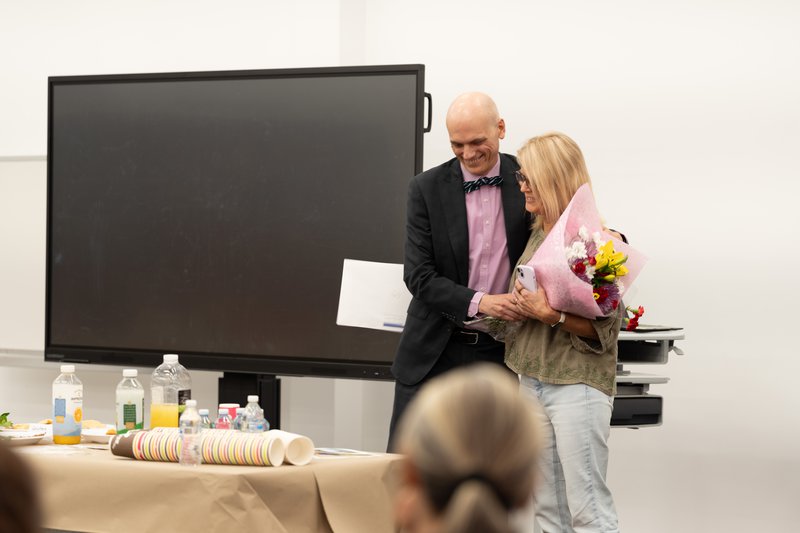
At our end-of-term afternoon tea this week, we bid farewell to a number of valued teaching staff. Several are retiring after many years of faithful service, others are supporting their families or exploring other avenues in 2025. It was evident that the expression “feels like family” rings true for our teachers. Many staff spoke of how they have been supported and encouraged throughout the years by their colleagues. It is a privilege and a blessing to work in a Christian environment where we are brothers and sisters in Christ.
We thank these staff members for their contributions to our community, and may God continue to guide their paths and their lives.
Secondary School
Mr Leon Lu has been an enthusiastic Science teacher who has thrown himself into school life over the short time that he has been with us. We wish him well as he and his wife settle in Melbourne.
Mr Cameron Mitchell has been a valuable HSIE staff member who has served as a Year Coordinator, crew leader and sport coach.
Mrs Kathy Corban is retiring after more than 20 years of teaching in our TAS faculty and taught hundreds of students to cook up tasty food.
We will certainly miss Mrs Libby Jackson who has taught Visual Arts for more than 30 years and has assisted many students through the HSC and injected so much creativity into the production of musical props.
Finally, our courageous and godly Head of Secondary, Mr Peter Richardson, who has led the Secondary School so capably in the past few years. We pray for him and his family as he commences as Head of Secondary at Illawarra Christian School. He will certainly be missed by staff, students and parents.
We are thankful to God for his provision of excellent Christian educators for 2025.
Mr Paul Carter
Deputy Principal
From the Head of Junior School
Junior School Staff Farewells
Junior School Staff Farewells
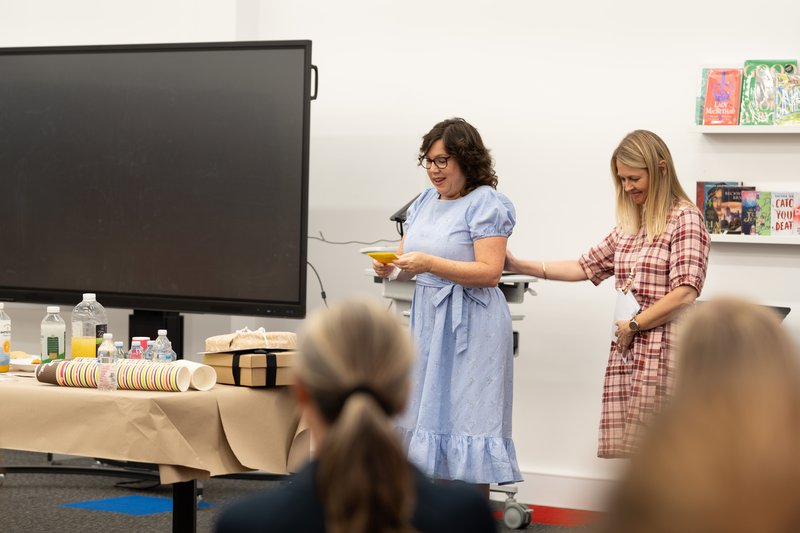
With a sense of loss and also immense gratitude we want to inform our learning community that Mrs Leanne Bentley and Mrs Sonja Whitaker are retiring this year. We are thrilled for the joy they will experience as they get to spend more time with their families and grandchildren. For more than 20 years they have been faithfully teaching and proclaiming God's truths to our students and we are thankful for the legacy that they leave with us.
Mr Scott Kennedy and Mrs Lara Rowlands will be also stepping back from full time teaching with us next year. We are so thankful for the impact they have had in our Junior School wish them God’s richest blessings for 2025, hoping to see them about the campus in various capacities.
Mr Timothy Bluhdorn will also be extending his leave into next year with the hope of returning in 2026.
Thank you to Mrs Jasmine Fraser for her incredible work with 5K this term, we wish her well as she begins teaching at St George Christian school next year.
I also want to take the time to thank Mrs Angelita George and Mrs Enas Moumdjian who are seeking to work casually next year with us, in following God’s lead for more time with their families. They have been an incredible team on Year 4 this semester and we are blessed by their professional and dedicated approach to learning.
Mrs Ruth Cooper
Head of Junior School
The Precious Gift of Jesus, Sport Fun Day, Exceptional Teaching Staff, Year 6 Celebration
The Precious Gift of Jesus, Sport Fun Day, Exceptional Teaching Staff, Year 6 Celebration
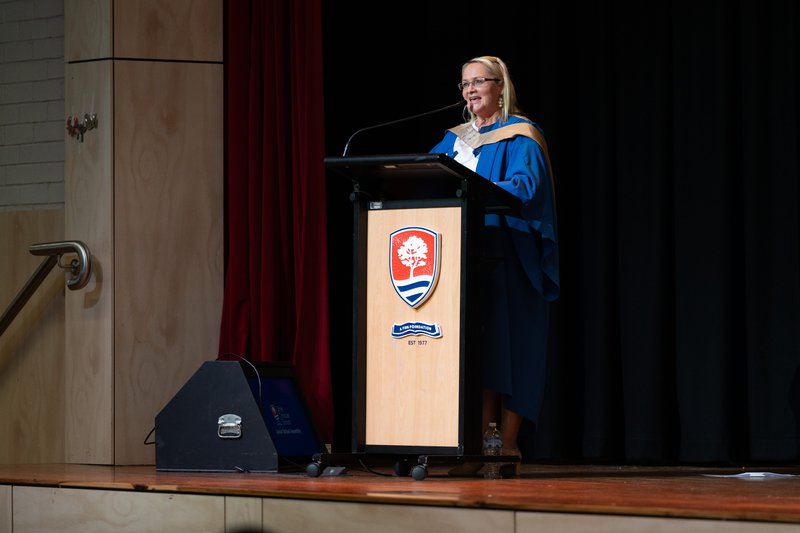
… “And you shall call His name Jesus, for He will save His people from their sins.”(Matthew 1:21) As we reach for the box of Christmas decorations and twinkling fairy lights, we pray that we might also spend time reflecting on the precious gift of Jesus to us. Jesus, God’s only Son, whose birth was all part of God’s salvation plan, to restore us into a relationship with himself. May we hold fast to this central message of God’s grace, forgiveness and unmeasurable love that is proclaimed at Christmas time.
Thank you to our House Leaders, Seth, Penny, Ivy and Abi, for their vision to create a Sport Fun Day for Prep to Year 6. They partnered with Mr Read to plan, organise and run a highly successful and enjoyable day for our Junior School whilst raising money for Forever Projects. Well done! Subway day was a huge success yesterday and our Junior School thoroughly enjoyed their special lunch! Thank you to all who participated in this special day!
As the school year draws to a close, I want to publicly thank our exceptional teaching staff, who have worked diligently this year to create engaging and enriching learning opportunities for our students.
Year 6 thoroughly enjoyed themselves on Tuesday evening at their celebration night and are to be commended on an enjoyable evening full of games, pizza, dancing, pass-the-parcel and even an ice-cream bar. What fabulous memories to share with each other. It was an honor to officially farewell Year 6 this morning at their graduation assembly and I will continue to pray for them as they begin a new exciting chapter of their learning here at Shire Christian School.
Mrs Ruth Cooper
Head of Junior School





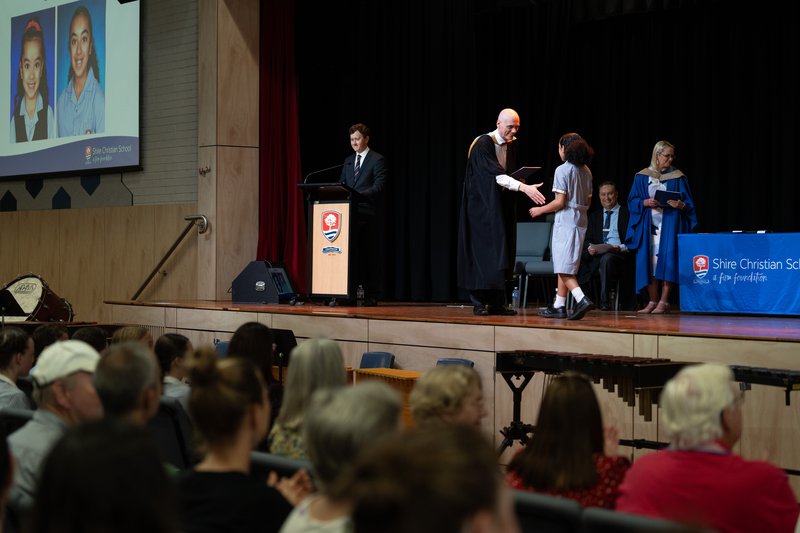



School Uniform
School Uniform

As you prepare for 2025, please remember to keep in mind our uniform policy when purchasing new black school shoes. Black shoes need to be “black leather lace-up school shoes with a firm sole and distinct low heel”. Black shoes are not to be a black jogger style shoe.
Please also be aware that on returning to school, boys will need to ensure their hair complies with our uniform policy which reads: “Hair must be groomed, neat and tidy, well above the collar and out of their eyes. The cut should be even in length. Hair must not be of a length that can be tied back”. Girls hair that is below the collar needs to be worn “fully tied back”. Students not meeting our uniform expectations will be followed up with consequences given. We appreciate your support in assisting students to feel a sense of belonging and create an identity for our school in the community, by wearing our uniform correctly.
News
Celebrating the 2024 Greg Smith Award Recipient
Celebrating the 2024 Greg Smith Award Recipient

The 2024 Greg Smith Award was presented to Year 9 student Josh Ip, honouring the memory of Mr Greg Smith, Head of Secondary from 2016 until his passing in 2020. This award recognises a student who demonstrates Christian character, a love for learning, perseverance, and positivity in the face of adversity.
Josh, who moved from Hong Kong to Australia in 2021, has shown exceptional resilience and faith. Growing up in a Christian family, he has been deeply committed to living out his beliefs, guided by the principle in James 2:17: “Faith by itself, if it is not accompanied by action, is dead.” Josh’s determination to act in alignment with his faith, even in challenging circumstances, reflects the qualities celebrated by this award.
We were privileged to have Greg’s son, Liam, present the award. He shares his father’s values and connection to the school community. As part of the presentation, Josh spoke about his journey and the lessons he has learned, encouraging others to trust in God and persevere in faith.
The award’s engraving, inspired by Hebrews 12:1-3, reminds us to “run with perseverance the race marked out for us, fixing our eyes on Jesus.” Josh’s story is a powerful example of this perseverance, and we thank him for sharing it with our community.
Mrs Kathryn Breen
Assistant Head of Secondary

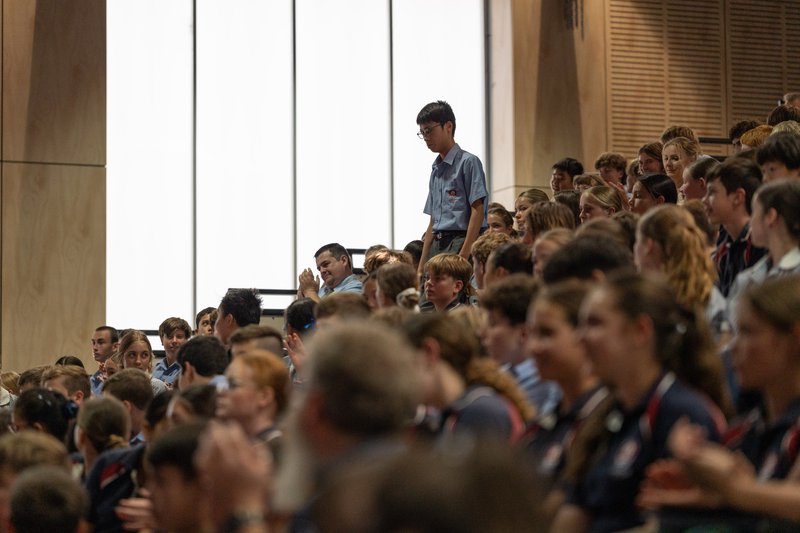



The Nathan Barry Prize for Evangelism
The Nathan Barry Prize for Evangelism

On Monday, 25 November, Shire Christian School had the privilege of presenting the Nathan Barry Prize for Evangelism during our secondary school assembly. This annual award is awarded to two Year 10 students who have demonstrated a heartfelt commitment to Jesus and a passion for sharing the good news of His salvation with others. Before the presentation, students watched a moving testimony video of Nathan Barry, a beloved former student of our school. You can watch his powerful testimony here.
Shortly after filming this testimony, Nathan lost his battle to cancer at the start of 2017 of which he would have been in Year 11. His faith and love for Jesus were a witness and example to many others and continue to inspire our school community. As Nathan shared in the video, his faith was rooted in the promise of 1 Peter 3:18:
" For Christ also suffered once for sins, the righteous for the unrighteous, to bring you to God…" Through Christ’s death and resurrection, we can all be brought to God, receive forgiveness, and have assurance of salvation. Another of Nathan’s favourite Bible passages was Romans 8:38-39, which says:
"For I am convinced that neither death nor life, neither angels nor demons, neither the present nor the future, nor any powers, neither height nor depth, nor anything else in all creation, will be able to separate us from the love of God that is in Christ Jesus our Lord." How wonderful is it that nothing can separate us from God’s love! Nathan's challenge to all was that "No matter what happens in life, the only thing that really matters is trusting in Jesus."
This year, we are delighted to announce that the Nathan Barry Prize for Evangelism has been awarded to Micaiah Beilharz and Abigail Gooch, two Year 10 students who consistently display a deep love for Jesus and a desire for others to know Him as their Lord and Savior. We congratulate Micaiah and Abigail for their outstanding example of faith and for living out Nathan’s encouragement to trust in Jesus in all circumstances.
Mr Peter Richardson
Head of Secondary



Alyssa Aylesbury’s HSC Artwork selected for inclusion in the Class of 24 Exhibition
Alyssa Aylesbury’s HSC Artwork selected for inclusion in the Class of 24 Exhibition

Alyssa Aylesbury’s HSC Artwork has been selected for inclusion into the Class of 24 Exhibition to be held from Friday 17 January 2025 – Tuesday 4 February 2025 in the Broadhurst Gallery at Hazelhurst Arts Centre.
This is a wonderful achievement for Alyssa as a Visual Arts student who has worked tirelessly on her conceptually layered Body of Work throughout her HSC year. The title of the series of works “Childhood within Screens” tells its message through a number of different expressive forms, such as drawing, painting & lino printing. It truly is worth a visit to Hazelhurst to see.
Mrs Libby Jackson

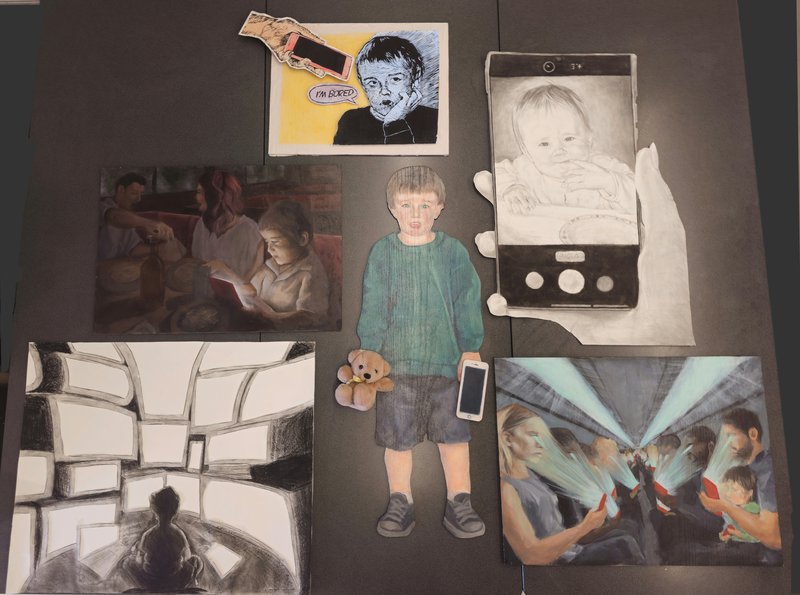
Outstanding examples of student work in English
Outstanding examples of student work in English
In Year 9 English this term, we have explored landscape poetry, focusing on how poets use imagery and metaphor to convey deeper meanings.
Students analysed the poem Native Grasses by Jeanine Leane, examining how she uses an extended metaphor to represent Indigenous Australia’s resilience and identity. Inspired by Leane’s work, students applied this term’s learning disposition, emulating, to create their own poems or creative writing pieces about topics important to them. Below is a poem by Year 9 student Ethan Ward, who crafted a powerful extended metaphor using a bushfire to represent anxiety, showcasing his creativity and understanding of metaphorical language.
The fire of the mind
it spreads like wildfire
doesn't matter the weather
but it's always put out
… eventually
whenever its extinguished
it'll always return
a new forest
a new place
more destroyed the more
it burns
call for backup
it always responds
but it won't help forever
I told you already
the forest will burn again
The fire of the mind
every forest is alight
all at a different time
yet they grow stronger
as time passes
we all face that fire
yet few call for backup
most put out the fire yet some
the fire destroys.
Year 12 Advanced English
This term in Year 12 Advanced English, we have explored the Common Module: Texts and Human Experiences through Arthur Miller’s drama The Crucible. Part of our study has focused on the human experience of pursuing truth in the face of personal and collective challenges, reflecting on how, as Christians, we are called to respond to such trials in our own lives. Using their reasoning skills, students were tasked with writing a brief reflection on how Miller’s play encouraged them to reconsider their understanding of truth. Below is a response from Year 12 student Annalisa Hunter, who thoughtfully reflected on how her faith has deepened her understanding of truth and its significance.
Arthur Miller’s The Crucible didn’t challenge my understanding and perspective on truth, but rather it extended on what I already knew, acting as a constant reminder about the evil that continues to exist, whether during the Salem witch trials, Mccarthysim, or our postcolonial world. It exposes the falsehoods behind the thinking that our society has “progressed”... for have we really? It seems to me that truth remains subjective even in our current society, manipulated and influenced by personal motivations and societal pressures, making its pursuit both complex and impossible to achieve.
As a Christian, truth for me is not just an abstract concept but a living reality that I am called to uphold; a compass I rely upon for all my choices in life. The people of God are called to be agents and ambassadors of truth in the midst of a confused and broken world. The Lord commands us to pursue truth and gain wisdom and insight. However, Parris’ motivations and choices, despite claiming to be a “man of God”, reminds me that reality, sadly, is very different; set apart from what God calls for me to do and believe. Parris's fixation on reputation renders him unprincipled and amoral; he has no true convictions or beliefs. Everything he claims to believe in, including God and the church, merely disguise his attempts to attain power. Similarly, his crusade against witchcraft is driven not by piety but by a desire for authority. His character suggests to me how obsession with one's reputation and social status can dictate and compromise a person’s code of ethics, hindering the pursuit of truth. Unfortunately, there are still many people within my current discourse that mirror Parris’ character and motivations, a pessimistic reminder that these issues are still relevant today.
On a more optimistic note, John Proctor restores some of my hope in humanity, as his complex journey highlights that while the pursuit of truth contains hardships and a plethora of obstacles, there are still people willing to fight for justice; for the objective truth. He learns the value of facing truth, openly admitting his adultery despite risking his reputation. This honesty leads him to reconcile his flaws, understanding that acknowledging his sin doesn't negate his capacity for goodness and integrity. The play ends with his death, and despite being unjust for a crime he didn't commit, it paradoxically embodies a form of justice. His sacrifice, driven by truth and integrity, becomes his redemptive act, symbolising personal justice despite the unfairness of his demise.
Thus, The Crucible is a warning of the destructive consequences of mass hysteria fueled by the manipulation of truth, however it also serves as a reminder for myself that I live in a world where the truth is malleable; a tool for control. Where Parris makes me lose my faith in society, John Proctor helps restore it, as he seeks to reclaim his sense of truth and integrity in a world that demands conformity and submission.
Mrs Stacey Saunders
English Teacher
Mindquest Certificate of Achievement Award - Cullen Hamlin
Mindquest Certificate of Achievement Award - Cullen Hamlin
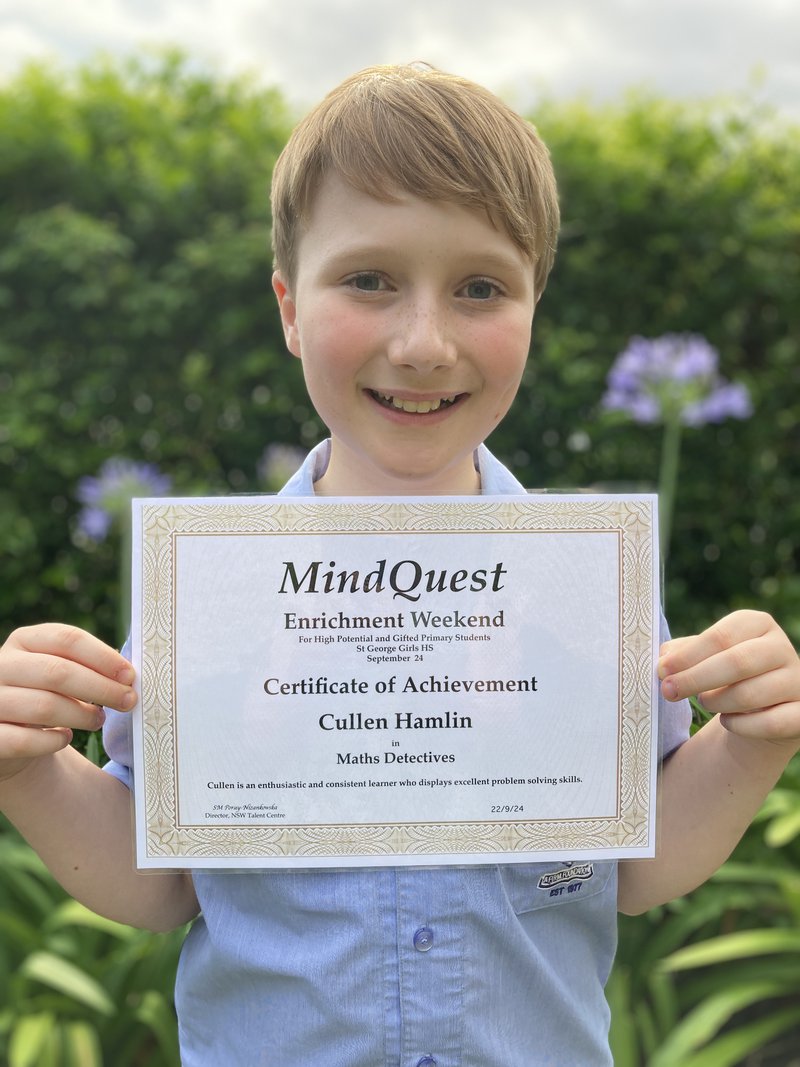
Congratulations to Cullen Hamlin, Year 4, for his outstanding work in the Mindquest weekend program earlier this term. Cullen participated in the Maths Detective course, one of over 33 exciting, fast paced courses available to students in Years 1-6.
Cullen was chosen by his course leader for his excellent contributions, enthusiasm, and impressive problem-solving skills. This recognition highlights not only his dedication to learning but also his ability to approach challenges with creativity and determination.
He is truly a wonderful ambassador for our school.
If you are interested in your child participating in one of the courses on offer at Mindquest, we advertise the weekends through our newsletter, in March and August each year or you can contact me directly for more information.
Mrs Leonie Hampson
Junior School Enrichment Coordinator
Auf Wiedersehen!
Auf Wiedersehen!

The last few weeks of German classes are always a busy time! With Year 10 finishing off with a special Weihnachtsfest, the German room was decorated with lights, a nativity scene, stars, and baubles.
We spent a lesson preparing Currywurst and Glühwein (well, Kinderpunsch) and then invited the elective and senior language students to join the festivities. It was a beautiful way to conclude our time together and to share German culture with others.
Year 8 have been meeting with our Kindergarten students and teaching them some German words. After interviewing the Kindergarten children, they are creating bilingual books to showcase and share the German skills they’ve developed this year.
Our final treat was a visit from our special guest, Mr. Albert Fiedler. He was 11 years old when the war broke out in Europe, and as a German, he experienced firsthand what it was like to grow up in Germany during WWII. Now 96 years old, he still visits our school every year to share his experiences of being part of the Hitlerjugend and how his school and community were shaped by the regime. He offers unique insights into both the time of his upbringing and its relevance to the world we live in today.
What a fantastic year of learning in German! I wish you all Frohe Weihnachten und einen guten Rutsch ins neue Jahr!
Frau McWhirter







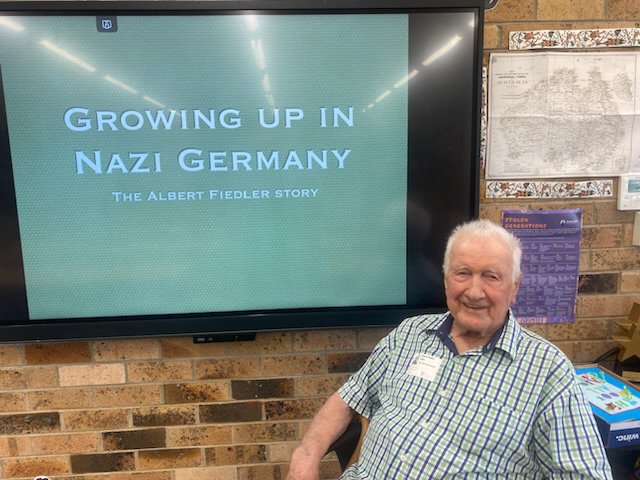

Year 8 students learn from Treehouse Theatre
Year 8 students learn from Treehouse Theatre

Our Year 8 students recently had the privilege of attending a moving performance at Treehouse Theatre, a program that brings the powerful stories of young refugees to life.
The experience offered our students an invaluable opportunity to hear firsthand accounts from young people who have journeyed from countries such as Myanmar, Nepal, Afghanistan, and India in search of safety and belonging in Australia.
The performance was the culmination of a therapeutic process where refugee students shared their personal stories of resilience and survival, which were then transformed into an engaging production. This unique program not only supports the healing of the refugee participants but also allows the audience to deepen their understanding of the challenges faced by young refugees. For our students, this was a profound experience, encouraging empathy, cultural awareness, and reflection on themes of hardship, hope and gratitude.
Mr Cameron Mitchell
Creativity on display in Toyota Dream Car Competition
Creativity on display in Toyota Dream Car Competition
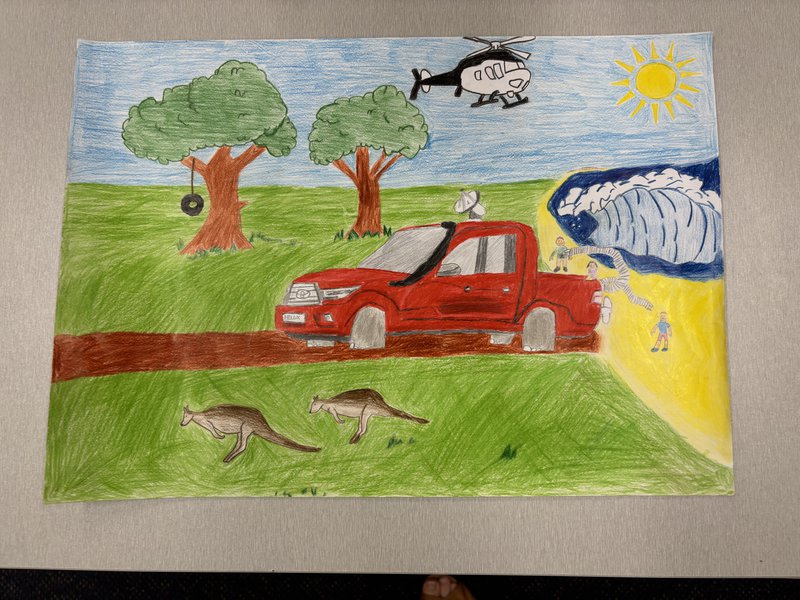
This term, students in the Year 3 and Year 6 Focus Groups have participated in the exciting Toyota Dream Car Competition. This competition encourages students to think critically about the world around them and design vehicles that meet the needs of society.
In Year 3, students explored the concepts of needs versus wants and creatively imagined how their dream cars could help serve others in the community and address various needs in different environments. Their projects reflected thoughtful designs with a focus on how a car could make a positive impact.
Year 6 students took a deeper dive into the concept of biomimicry, learning how nature’s designs—created by God—often inspire human inventions. They explored how the unique features of animals and plants influence many of the products, buildings, and technologies we use today. Connecting this with their study of natural disasters in Science, Year 6 students created innovative designs for rescue vehicles that could help people during emergencies like floods, earthquakes, cyclones or bushfires.
Both year groups combined their creative ideas with an understanding of the world through a Biblical lens, producing artwork that illustrated their dream cars in action, meeting a specific need or serving a community.
Congratulations to all students who participated in the competition! Their original, creative, and thoughtful designs are a testament to their hard work and imagination. I am so proud of their efforts and the impact their ideas could have on the world!
Mrs Leonie Hampson
Junior School Enrichment Coordinator

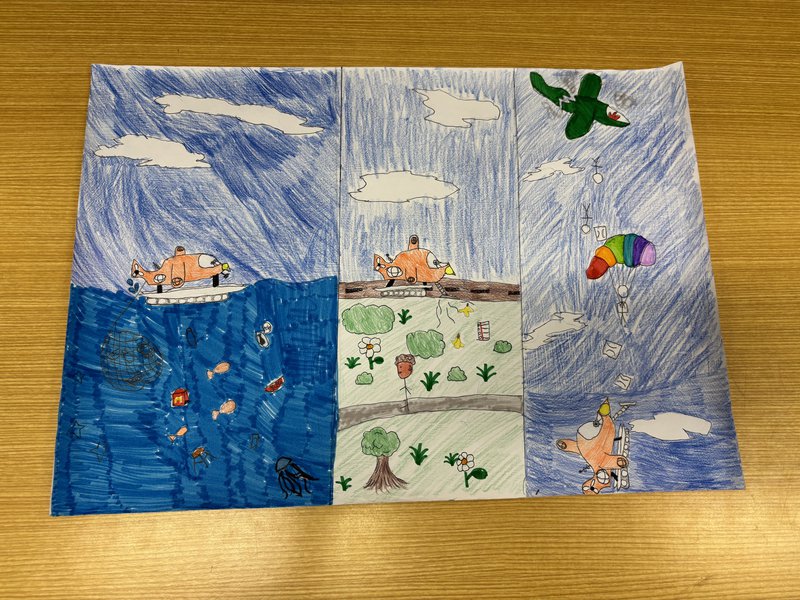

Top results at Australasian Problem-Solving Mathematical Olympiads
Top results at Australasian Problem-Solving Mathematical Olympiads
The Maths Explorer and Maths Olympiad challenges were fantastic opportunities for students in Year 3 to 6 to engage in mathematics, encouraging them to use a variety of strategies to promote flexibility in their problem solving.
Maths Explorer – Years 3 and 4
The Maths Explorer program focuses on exploration and hands-on activities in mathematics. It encourages creativity and critical thinking through fun challenges and projects. This year a group of students from grades 3 and 4 worked collaboratively on 4 challenges across the year.
Congratulations to all those who participated in the Explorer challenge this year. A special mention to Cullen Hamlin and Alana Rowlands who achieved a perfect score over the four challenges and to Samuel Dewhurst, Jonathan Donnan, Daniel Yan, Grace Phung and Ciara Zammit for scoring the top results in Grade 3.
Maths Olympiad 2024- Years 5 and 6
The Maths Olympiad requires students to solve complex and advanced problems that require deep mathematical understanding and creative problem-solving strategies. Students prepared for each Olympiad under the guidance of Mrs Lara Rowland who engaged them in a variety of problem-solving tasks, completed past papers and investigated different ways to solve a variety of challenging mathematical questions. I am thankful for her dedication and love of mathematics that is evident through the way she supports and guides the students in her Maths Groups.
Congratulations to all students who competed in the Maths Olympiad.
These students received awards for their excellent results and the focus and effort they put into each Olympiad.
- Eva Shi - Top 25% of students in Year 5
- Oliver Yeung -Year 5 Special Achievement Award
- Caleb Lee - Top 25% of students in Year 6
- Esther Gooch- Top 25% achiever patch
- Jennifer Lee-Year 6 Special Achievement Award
Mrs Leonie Hampson
Junior School Enrichment Coordinator
Barnabas Blog
Unto us a Child Is Born!
Unto us a Child Is Born!

Last week I was talking with a friend, a dear brother in Christ who was converted quite dramatically at 2 am on Wednesday 5 February, 1992, after spending nearly 4 decades of his life thinking (wrongly) that he was a Christian simply because he had been baptised as a child and went to Church reasonably often!
My friend had been doing some reading that raised an interesting question: To whom does the ‘us’ refer in Isaiah 9:6? In all my many years of reading the Scriptures I had always assumed the ‘us’ referred to the fallen human race, including me. Whereas this is certainly true, given the context and the message of the whole of Scripture, the questioner suggested that it probably has a more significant reference to the Godhead HIMSELF!
WE know, as John Francis Wade reminded us 400 years ago, that the Lord Jesus Christ was ‘begotten, not created’. In other words, he was ETERNALLY the Second Person of the Trinity, and so his BIRTH as a MAN was as much a noteworthy event for the Trinity as it is for us. I find this very interesting.
I have always been extremely excited about the Incarnation and its significance in the whole Gospel Story - God’s eternal Salvation Plan - or at least since I first became aware that I was a sinner-saved-by-grace in August 1957. So Isaiah’s three-millennia-old announcement that Jesus is born into our broken world for the express purpose of saving ME, is what gets me up every morning. But when the Apostle Paul writes of the Incarnation that Jesus was ‘being found in appearance as a man’ (Philippians 2:8) it makes me realise that this was not only THE BIG THING for Jesus, it was THE BIG THING for the WHOLE Trinity. From all eternity, before Creation, God the Father had an Amazing Plan to save us from our sinful selves and to reconcile us to himself, and the Key Person in this Plan was his own Beloved son! As the Apostle John reveals: Jesus is “the Lamb who was slain FROM THE CREATION (‘foundation’, ‘laying down’, ‘conceiving’) of the world”. I am feeling I am getting a bit ‘out of my depth’ here, but one thing I do want to do this Christmas is get hold of my friend’s source book in the hope that I will better understand the real import and impact of this interesting idea.
God the Father, God the Son and God the Holy Spirit were ALL active in my (and my friend’s) conversion: the Father CHOSE us, the Son DIED for all those the Father chose, and the Holy Spirit works to ensure that ALL those whom the Father has chosen, and for whom the Son died, COME to FAITH. All this is why Jesus could cry out from the Cross as he died, “IT IS FINISHED” (John 19:30).
May we ALL have a truly BLESSED Christmas as we move into the well-earned summer break. Let us support one another, especially our Shire Christian Principal, Department Heads, teachers and other staff in our prayers during this time, that we might have a safe, refreshing and encouraging break to prepare us for all the challenges of 2025.
Rev Bruce Christian
Notices
2025 Fee Schedule
2025 Fee Schedule
The 2025 fee schedule has now been published and is accessible via the website.
We recognise that school fees are a significant financial responsibility and are grateful for the value our families place on Chistian education, as we seek to equip our students for life, to the Glory of God.
The school offers a bursary program to assist families in financial hardship. If you are concerned about your ability to pay the school fees, please contact the Business Manager as soon as possible to discuss your situation.
Information about the factors which contribute to school fees has been recently published in our newsletter.
Junior School Fun Day – Colour Run – Wednesday 6 December
Junior School Fun Day – Colour Run – Wednesday 6 December

Our final day for 2024 will be Wed 6 December, for our Junior School Fun Day. This will be a mufti day for Junior School students, which will include a Colour Run. Students are encouraged to wear old clothes and shoes, and bring a clean shirt or change of clothes in a plastic bag, within their bag.
Please see further details in our recent email or via the excursions and events link on the SEQTA home page. Students will also be bringing a small plate of food to share with their class for a class party at recess time. The school will be providing a BBQ sausage sizzle for lunch. Parents are warmly invited to join us from 11:30am for the start of our Colour Run and enjoy a picnic sausage sizzle picnic with their children. If you are able to volunteer your time to come up earlier to assist with our BBQ’s, serve food or help with organisaiton, please complete the form as part of the student permission process.
Mrs Ruth Cooper
Head of Junior School
Uniform Shop
Uniform Shop

Location: 6/133 The River Road, Revesby, NSW 2212
Opening Hours:
Monday to Friday 9am - 5pm
Saturday 9am - 1pm
For online purchasing and appointments visit shop.ranier.com.au (click & collect and delivery options available)
Click and Collect
School Click and Collect orders placed prior to 5pm on Fridays can be collected from school reception from Tuesday morning the following week during term time.
Contact
Phone: 02 9773 8291
Online: ranier.com.au/contact
Email: custservice@ranier.com.au
2024 Yearbooks
2024 Yearbooks
The yearbook for 2024 will be available for families in Term 1 next year. For families who are finishing at Shire Christian at the end of this year, the book will be mailed (this includes Year 12 students).
Follow us on social media
Employment Opportunities
Employment Opportunities
Confidential Feedback
Confidential Feedback
We welcome your thoughts, suggestions and concerns to help us improve at Shire Christian School. Click here to make a submission.
Shire Runners Shirts Now Available
Shire Runners Shirts Now Available

Excitingly, our new Shire Runners shirts are now available. They look amazing and feel great! You must get in quickly because orders close on Wednesday 18 December so that they will arrive early in Term 1.
Ordering a shirt is completely optional.
Shire Runners is a before-school running group for all ages and abilities which runs on a designated morning during school term. Information about how to join will be published at the start of 2025.
Edstart - an alternative fee payment option
Edstart - an alternative fee payment option

Shire Christian School is pleased to offer an alternative payment option to assist families with managing their school fee payments.
Edstart helps make it easy for you to manage school fees by providing flexible payment plans. You can reduce your annual school fee spend by extending payments over a longer period.
With Edstart, you can fund tuition fees, additional charges such as uniforms, extra-curricular activities as well as amounts in arrears.
To find out more, visit edstart.com.au/shirechristian.
Please note that in providing information about Edstart, the school is not providing any recommendation, brokering or advice services. The school does not receive referral fees, commissions or any other remuneration from Edstart.
Now Enrolling 2026
Now Enrolling 2026
If you have a child who is not already enrolled at Shire Christian School and are interested in sending your child in 2026, please apply immediately. Please contact the registrar, Mrs Terry Mann, for more details.
Community
Shire Christian School Business Directory
Shire Christian School Business Directory

We are pleased to provide a directory of businesses with family or alumni connections to Shire Christian School (businesses of current parents, former parents, former students).
The directory is now available on our website and will become more useful over time as families continue to register their businesses.
The initiative is designed to build community, encourage support for our families who are business owners and provide access to goods and services from within our community.
If you’re going to spend anyway, why not spend with a local Shire Christian School connected business and invest in your community.
View the directory on our website or register your business.
For Prayer and Praise
For Prayer and Praise
Here is a trustworthy saying that deserves full acceptance: Christ Jesus came into the world to save sinners…”. 1 Timothy 1:15
- Praise God that Christ Jesus was able to save sinners through his death on the cross.
- Praise God for the school year - for the teachers, staff, students, the friendships, the lessons learned, the way the students have grown and the experiences they’ve had this year.
- Pray for refreshment and safety over the school holidays.
- Pray that this Christmas we will remember who Jesus is, and why he came into the world.
- Pray for local churches as they seek to share the good news of Jesus Christ with others.




